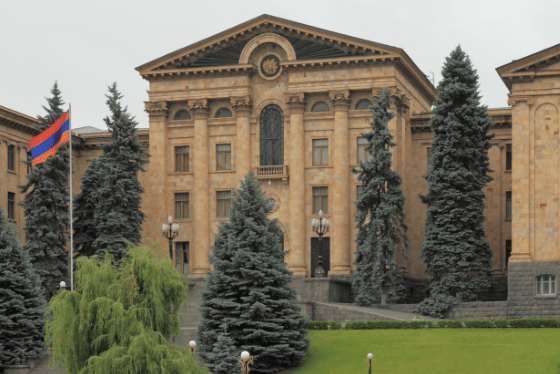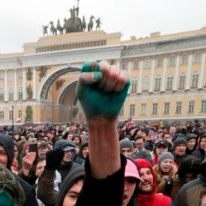Kremlin policymakers continue to strategize ways to legitimize their actions toward Ukraine — alongside diminishing chances of Western sanctions being lifted and getting the Trump administration on Russia’s side.
Moscow seeks not only to justify its confrontational behavior but to normalize it through selective references to Western political concepts. It hopes that its language of normalization will be more comprehensible for international audiences than the nebulous “Russia world,” “Russian spring,” “spiritual bonds,” and other figures of speech.
Unfortunately, Moscow has found a touch of success with its “selective reference” approach because parts of it have been reproduced by some scholars, both Western and Russian.
The first argument in Russia’s “narrative of normalization” is that from the end of the Cold War it was Russia that made appeals for common norms, and it was the West that regularly muddled these efforts. The argument goes that these discrepancies form the current deadlock in East-West relations.
However, some empirical facts make the picture more complicated (for example, the participation of Russian troops in military operations around the Pristina airport, Kosovo, in 1999). It seems that rather than contributing to the establishment of common norms, Russia was interested in being accepted as a major international player no matter what it takes.
But even if we presume that norms were an important element of the Russian agenda, when and why did Russia relinquish a normative strategy in favor of openly violating the core rules and principles of the post-Cold War order?
The second (related) argument points to a normative core of Russian foreign policy, which, quite expectably, involves the idea of sovereignty.
Indeed, rhetorical sovereignty is an important element of Russia’s mainstream discourse. But how normative is it? I doubt that the Russian understanding of sovereignty is value-laden or norm-based. Rather, I think it is quite instrumental and pragmatic.
In fact, the normative laxity of the Russian model of sovereignty is evident. Take for example the recurrent suspension of Russian laws due to the demands of international sports organizations (FIFA, Olympic Committee) years before such mega-events are to take place in Russia.
The strongest blow to a normative conceptualization of sovereignty comes from Russia’s own blatant disrespect for national sovereignties in the post-Soviet space (Georgia, Ukraine) and perhaps even beyond (United States, Europe).
Moving to a higher level of generalization, norms and values are areas that political actors sometimes sacrifice their own interests for. What norms would outweigh the interests of Russian actors? None come to mind.
This leads to the third point in the normalizers’ agenda, namely their description of Russian foreign policy as allegedly realist. The view here is that Russian foreign policy does not differ much from equally selfish, cynical, Western policies. Indeed, there is always ample space for comparisons.
However, it remains highly debatable whether foreign policy realism as a school of thought might be fully applicable to understanding Putin’s Russia. Realism is unthinkable unless there is a widely-shared understanding of “the national interest” among both the political class and society-at-large.
Society is inseparable from the idea of “the public good.” Thus, national interests are not what the Kremlin says they are but rather concepts constructed by everyone — citizens, civil society workers, policy experts, academics, journalists — all playing key roles in the formulation of the national concept.
Have we seen such broad discussions in Russia? Has there been deep and widespread debate in Russia on why the annexation of a Ukrainian peninsula matters more for Russia’s national interest than debilitating economic sanctions or being expulsed from the G8? There are not any that I am unaware of.
Perhaps it is not Russia that can be seen through a “realist” lens but the “normalizers” themselves. Their logic is quite dichotomous: unless the West is ready to accept all of the deadly consequences of directly confronting Russia, it has to negotiate with the Kremlin or cave to its demands. This “either–or” logic is false.
In international affairs there are many possible policy shades. For example in the Ukraine situation sanctions can be expanded, travel bans imposed, or more international support provided to Ukraine’s defense sector.
Moves such as these might be more instrumental in “normalizing” the Kremlin than de-facto legitimation of its policies.











